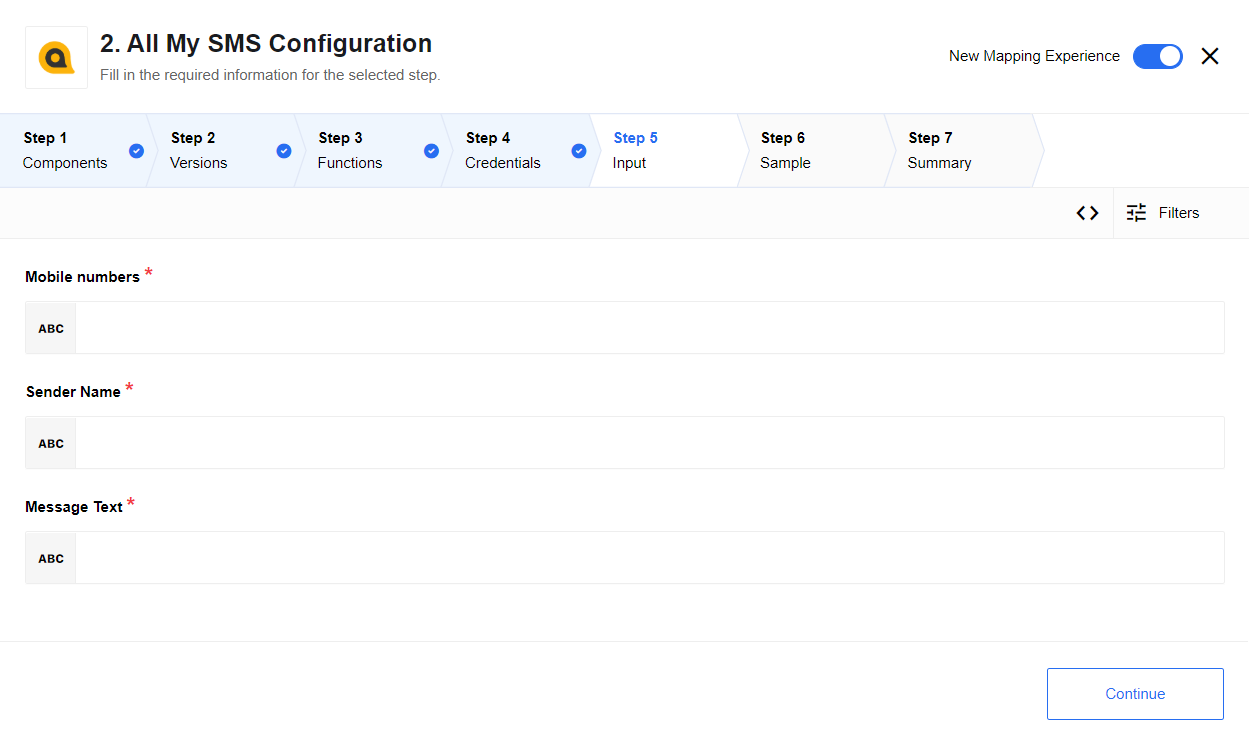AllMySMS
The AllMySMS component lets you send SMS messages via the AllMySMS SMS messaging service.
This component includes a demo API key and trial sending ability. When the trial is used, the message sent has a prefix of `TRIAL USE: ` added to the message. The number of senders is limited to two in trial mode.
Credentials
- API key
-
API key to access AllMySMS service API.
- Login
-
AllMySMS API account user ID.
If one of the credential fields is blank, then component will work in a trial mode. The characteristics of trial mode are:
-
The text 'TRIAL USE:' will be prepended to the text.
-
The number of recipients is limited to two.
Triggers
This component has no trigger functions.
This means you can not select it as a first component during the integration flow design.
Actions
Send
This action will send SMS to one, or multiple numbers provided all the input fields are filled correctly.

The input fields are below:
- Mobile numbers
-
This is a comma-separated list of receivers' mobile numbers. For example: 3xxxxxxxx,3xxxxxxxxx It is recommended that the number of receivers be limited to 2000.
The platform does not perform specific number validation. - Sender Name
-
The name for the sender that will be displayed on the receiver side.
- Requirements
-
Three to 11 characters, only alpha-numeric (
A-Z/0-9) and must start with a letter.
- Message Text
-
The text that will be sent.
- Requirements
-
Maximum length is 160. Anything over that will be truncated.
Additional information
The API documentation for AllMySMS is available at https://doc.allmysms.com/API/allmysms_api_https_v9.0_1.18_EN.pdf
Known limitations
Below are the limitations of this component, as enforced by the AllMySMS service:
- Sender Name
-
Must be three to 11 characters long and contain only alpha-numeric (
A-Z/0-9) values, and must start with a letter. - Message Text
-
Must be no longer than 160 characters for a single SMS.
- Number of recipients
-
Recommended below 2000.